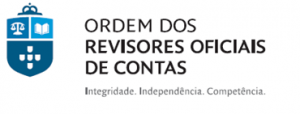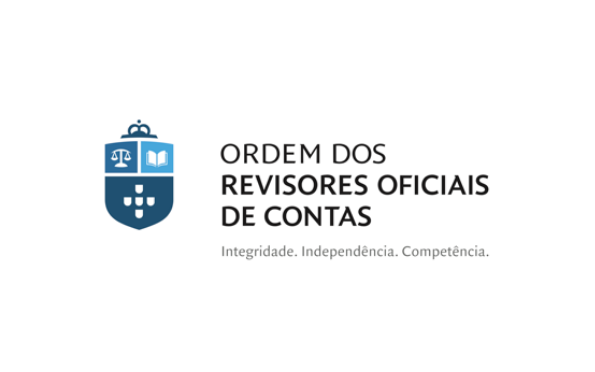Training OROC organizes training online and defines technical guidelines for the practice of auditing

Uncertainty generated by the COVID-19 pandemic requires greater care in the provision and processing of financial information in order to respond adequately to new risks. OROC organizes training online and defines technical guidelines for the practice of auditing in an unprecedented situation, positioning auditors at the forefront of economic recovery.
The Order of Statutory Auditors (OROC), given the unusual circumstances and aware of the potential impacts that COVID-19 has on auditing, is organizing training in late October and early November. online to help auditors carry out their work. At the same time, it launches a set of technical guidelines and recommendations for auditors in view of the risks (increased fraud factors, likelihood of material misstatement, among others) and challenges (from redefining target markets to the difficulty of obtaining information) generated by the pandemic.
The training - which is aimed at Statutory Auditors and their collaborators, trainee members, members of supervisory bodies, regulators, consultants, lawyers, legal experts, other technicians and interested professionals - aims to highlight some of the aspects that the auditor must take into account when carrying out his activity and is scheduled for October 27 and 28 from 14h00 to 17h30 - and November 5 and 6 from 09h30 to 13h00.
The initiative, which, like others from the Order, is being held onlineis a follow-up to several meetings and publications that OROC has held on the potential impacts of COVID-19 on auditing and is an opportunity to highlight such matters and discuss approaches that may be more appropriate to the current circumstances. An example of these approaches are the guidelines and recommendations in the face of the risks and challenges generated by the pandemic.
Access to government support by providing false information, vulnerability to external attacks or the presentation of "improved" financial information when contracting financing are all factors that increase fraud and the likelihood of material misrepresentation.
In addition, the challenges of possible reductions in production and sales, redefinition of target markets and increased credit and liquidity risk must be addressed, as well as those facing auditing procedures. Examples include the difficulties of accessing client premises and obtaining information to substantiate sufficient and appropriate audit evidence, and preparing responses to foreseeable adverse economic impacts on accounting and financial reporting.
"The Order recognizes, and all auditors recognize, that our work is done in the public interest and that the quality of the audit remains, in the current difficult circumstances, a constant concern"says the President of the OROC. José Rodrigues de Jesus, however, points out that "An audit cannot predict the unknown factors or all the possible future implications for a company. And this is particularly the case in relation to COVID-19".
In this context of instability and uncertainty, to which is added companies discontinuing or reconverting their activity, OROC advocates that the auditor reinforce professional skepticism and exercise thoughtful judgment to assess whether there is evidence of material uncertainty about a company's ability to continue operating.
For the President of the OROC, José Rodrigues de Jesus, this is a "a time for defining responses and implementing new processes between managers and auditors, making use of the standards already in force and seeking to put in place additional control and review processes".
Understanding internal control helps the auditor to identify factors that affect the risk of material misstatement and to design the nature, timing and extent of additional audit procedures. Regardless of the decision to test controls as part of the audit strategy, the auditor needs to identify, assess and document relevant internal controls.
Despite the current circumstances, the auditor must obtain sufficient and appropriate evidence of the risks of material misstatement identified and assessed. Audit evidence should be all the more persuasive the higher the risk assessment and additional confirmation procedures help the auditor to obtain evidence with a necessarily high degree of reliability to respond to significant risks of material misstatement due to fraud or error, increasing the certainty of the evidence obtained.
The response must necessarily be based on adapting to a new reality, with the aim of full compliance with accounting standards for companies and auditing standards for auditors. This ability to adapt is vital to ensure the quality of audits as a key factor in economic recovery and the confidence of market players and the public.
It is up to the auditors to maintain up-to-date knowledge of the environment in which the entity operates and to keep up with the information and recommendations issued by national and international bodies. The financial reporting standards accommodate the current situation, but an additional effort is required of managers and auditors.
Firstly, company management bodies must assess whether their financial reporting contains sufficient and appropriate information on the possible effects of the pandemic on their business, so that the financial reporting appropriately and truthfully reflects the company's financial position and performance and is useful for making informed economic decisions.
Most companies prepare their accounts on a going concern basis. It is the responsibility of the management body to assess and state, as appropriate in the circumstances, that this assumption is substantiated and maintained. It is the auditor's responsibility to assess whether the management body's assessment is appropriate.
The foreseeable impacts on many companies, still of an unknown nature and scale, will have an effect on accounting and financial reporting. The pressure on financial statement preparers and auditors resulting from the evolution of the COVID-19 pandemic requires responses based on adapting to this new reality. Always aiming for full compliance with accounting standards for companies and auditing standards for auditors.

